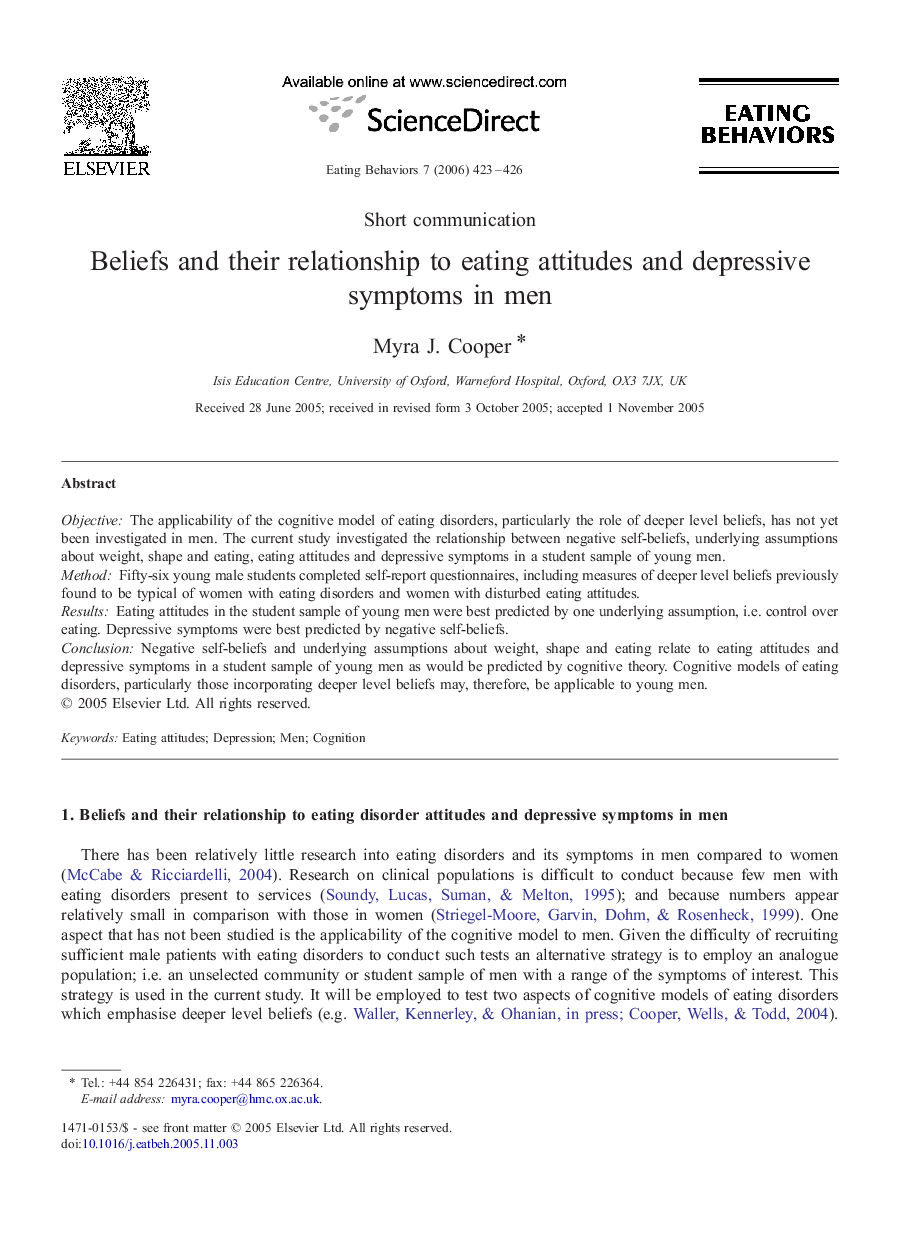| Article ID | Journal | Published Year | Pages | File Type |
|---|---|---|---|---|
| 906984 | Eating Behaviors | 2006 | 4 Pages |
ObjectiveThe applicability of the cognitive model of eating disorders, particularly the role of deeper level beliefs, has not yet been investigated in men. The current study investigated the relationship between negative self-beliefs, underlying assumptions about weight, shape and eating, eating attitudes and depressive symptoms in a student sample of young men.MethodFifty-six young male students completed self-report questionnaires, including measures of deeper level beliefs previously found to be typical of women with eating disorders and women with disturbed eating attitudes.ResultsEating attitudes in the student sample of young men were best predicted by one underlying assumption, i.e. control over eating. Depressive symptoms were best predicted by negative self-beliefs.ConclusionNegative self-beliefs and underlying assumptions about weight, shape and eating relate to eating attitudes and depressive symptoms in a student sample of young men as would be predicted by cognitive theory. Cognitive models of eating disorders, particularly those incorporating deeper level beliefs may, therefore, be applicable to young men.
